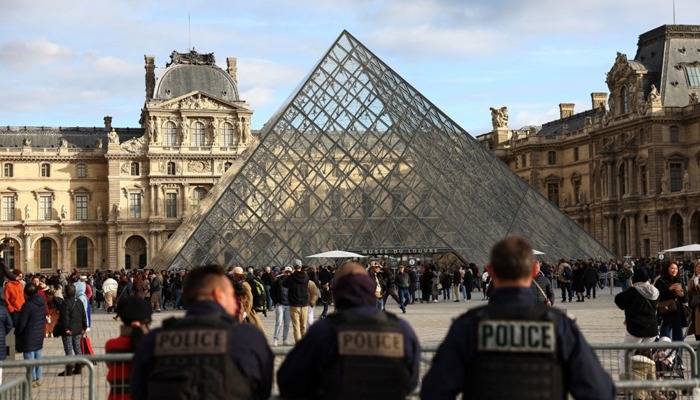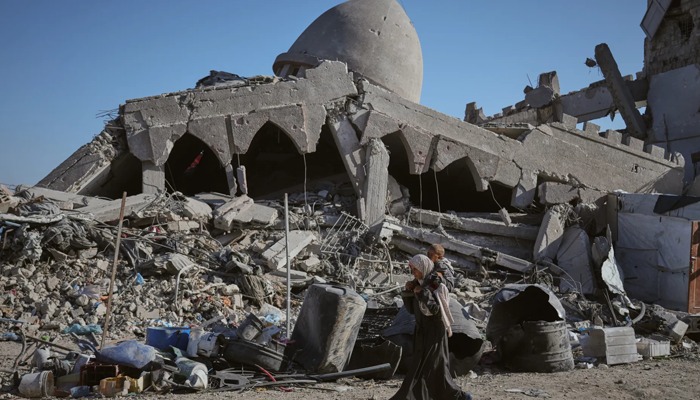When Karachi’s former mayor Naimatullah Khan filed a petition in 2010 directly in the Supreme Court for removal of encroachments, he perhaps did not know that even a decade after his death, the SC would continue passing orders on his petition for removal of illegal structures from every corner of the city.
Popularly known as “Karachi lawlessness case”, the first major order on his petition was passed in September 2012, when the apex court put a blanket bar on lease of state lands in the province.
The bar is still in force except for the lease of land for national projects.
Six years after placing the ban on lease of state land, the top court issued another landmark order in October 2018, directing removal of illegally constructed shops from footpaths and other public spaces.
During the drive which continued for a week, the authorities removed thousands of shops established on public space, especially in Karachi’s districts east, south and west.
The biggest operation was conducted along the city’s Hawks Bay Road where shops on a several kilometer long stretch of the road were removed.
Around the same time, an SC bench hearing a miscellaneous application in Naimatullah’s petition, ordered removal of shops established around the historic Empress Market in Saddar area of the city.
A whole makeshift market that housed bird shops was wiped out while hundreds of shops selling groceries, second hand clothes, shoes, kitchen utensils, and fast food were removed from every side of the Victorian era market.
Authorities later established a green space at the encroached area which was also secured with iron fences. The shops established in and around Jahangir Park in Saddar were also removed and the park was rebuilt with several modern facilities.
A third phase of removal of encroachments on public spaces and state lands started when current Chief Justice of Pakistan Gulzar Ahmed took oath of office. Hardly six months had passed since Justice Gulzar took office as chief justice of Pakistan when monsoon rains devastated Karachi in 2020.
The PP led Sindh government laid blame of the catastrophe on the encroachments along major storm drains, which, according to the government, were choked at several points due to illegal structures.
The SC took notice of the situation and ordered immediate removal of the encroachments, mostly houses built along the beds of the drains that reduced their width. The waste produced by such houses was also dumped in the drains while sewerage lines of such houses poured sewage down the drains.
While the federal government took the responsibility of cleaning the drains, the court ordered the provincial government to remove all settlements from the drains and to rehabilitate the people affected by such anti-encroachment drives to some other places.
During this phase, the Supreme Court also issued orders against commercial use of park land. The court ordered removal of shops set up at the city’s famous Aladin Park.
The company that was given a contract to run an amusement park at the place had built shops there and sublet them. A privately-run club on the government land was also removed under the court’s order.
In June 2021, the Supreme Court ordered demolition of Nasla Tower, a commercial cum residential high-rise built at the junction of the city’s Sharea Fasial and Sharah-e-Quaideen.
The court ruled that in addition to occupying 780 square yards of legally leased land, the project owner had encroached on about 344 square yards of land meant for a service road.
The Supreme Court during recent hearings at its Karachi registry made it abundantly clear that no commercial or residential construction would be allowed on the amenity plots and those already constructed would be demolished.
Recently, the provincial government on the demands of the Association of Builders and Developers (ABAD) indicated that it is bringing an ordinance for regularization of buildings constructed in violations of building laws.
A draft of the ordinance proposing setting up of a commission headed by a retired judge of the Supreme Court or the Sindh High Court (SHC) for considering regularization of buildings on case to case basis was sent to the Sindh governor for signing and promulgation. However, the governor refused to sign it.
“How can the government bring an ordinance to defy the orders of the Supreme Court whereas the Article 189 of the Constitution bound every organ of the state to help implement its orders,” questioned Advocate Tariq Mansoor.
Mansoor claimed that after sane legal advice the provincial government had finally scrapped the plan to bring the ordinance.
A former judge of the SHC Mehmood Alam Rizvi supported the Supreme Court efforts to reclaim the public spaces and amenity plots. He said a judicial intervention becomes necessary when government institutions, instead of removing encroachments, start protecting and promoting them.
“The apex court in its recent orders have rightly pointed out that those whose duty is to take action against illegalities are not committed to their tasks and therefore the court has to pass orders to undo such illegalities,” he said.
Tariq Hamza Khan, another senior advocate, said illegal constructions and encroachments take place with the help and support of government institutions.
“When a common man unloads construction material in front of his plot all the relevant agencies not only know about it but their officials also reach the site to demand documents and permissions.”
He said after demolition of illegally constructed projects and arrests and criminal prosecution of those who allowed such illegalities to take place, the trend of taking such things as a normal would gradually end and people would also exercise due diligence while purchasing property.


















